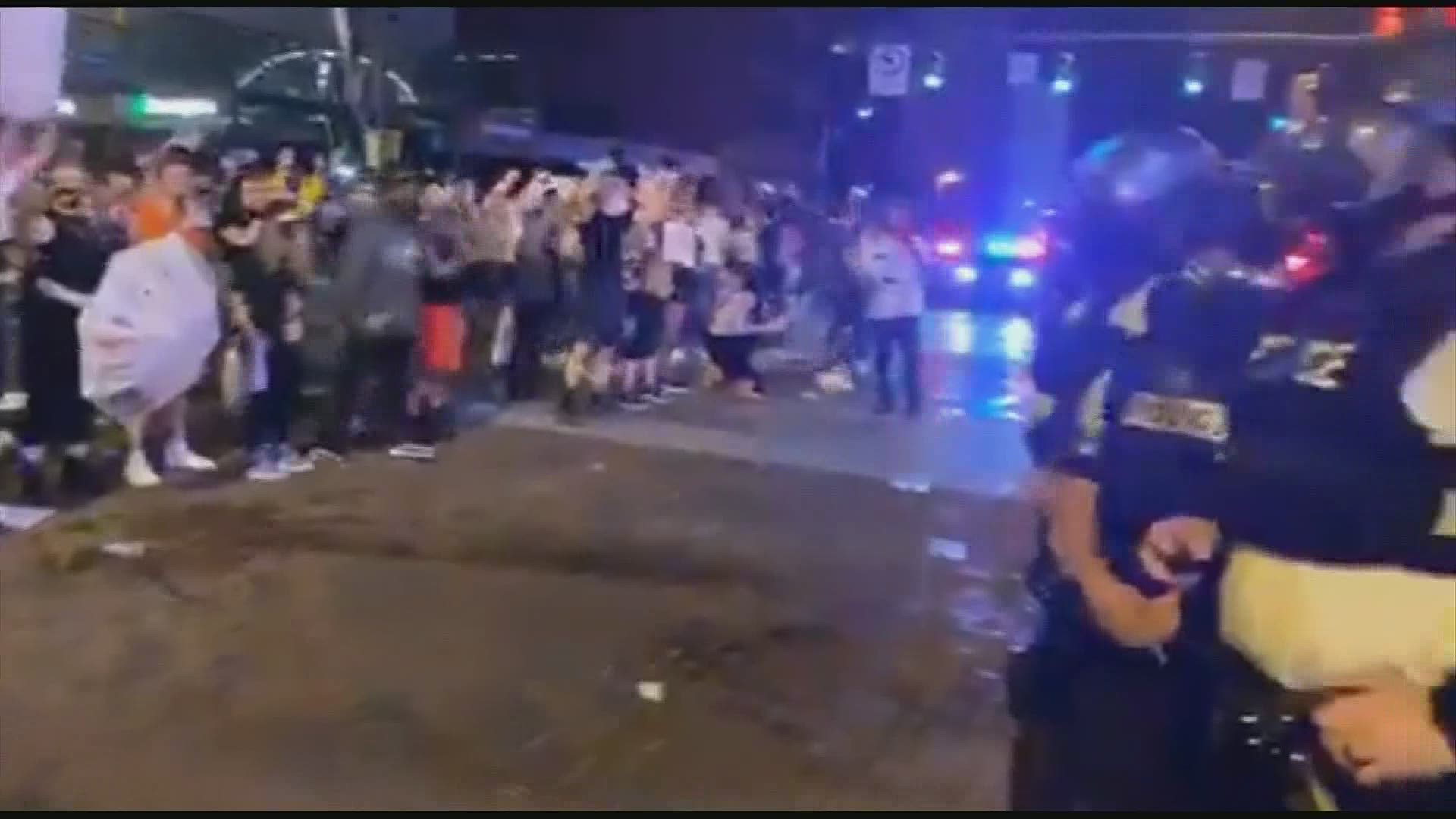It has been nearly 10 months since protests began in downtown Columbus after George Floyd's death in Minneapolis while in police custody.
For days, protesters and the Columbus Division of Police took to the streets.
After clashes between the groups, Columbus Mayor Andrew Ginther hired the law firm BakerHostetler to investigate uses of force and complaints against officers during the protests.
Ginther and the city also hired retired FBI agent Rick Wozniak and former Franklin County Assistant Prosecutor Kathleen Garber to investigate and potentially prosecutor any criminal wrong-doing by Columbus Police officers during the protests.
Wozniak has been paid $81,549.37 to date and Garber has earned $24,938 from the city.
The pair are still investigating 19 cases, all of which are still open, according to the Department of Public Safety.
According to court documents, five of the officers under investigation filed a motion through their attorney for a temporary restraining order.
The officers argue because of the Fraternal Order of Police contract with the city, officers must be investigated by the Columbus Division of Police.
The filing argued the city's tactics to gather evidence were unconstitutional and violate federal case law and Ohio rules for criminal procedure.
Following any use of force, officers are required to explain their actions to their supervisors, in what is a Garrity rule. If the officer does not provide those truthful accounts, they can be charged internally by the division.
These investigations focus on the incidents on May 29, 2020 on Broad Street and High Street, May 30 at Broad Street and Grant Avenue, Broad Street and Marconi Boulevard, and a June 1 incident involving members of Ohio State University's school paper, The Lantern.
Mayor Ginther declined to comment, but Garber responded in a written statement:
"As the independent prosecutor, I have a duty to exhaust all potential avenues to conclude our investigation. We're in the final stages of this effort, and the independent investigator and I believe that criminal conduct occurred, but in some situations we cannot identify the officers engaging in that conduct due to the gear they were wearing at the time. Accordingly, using the authority granted to me under the Columbus City Code, I attempted to use investigative subpoenas as a means to compel officers who witnessed the potential criminal conduct to identify the officers in question. Despite the fact there is a city code section authorizing the issuance of these types of subpoenas, I discovered that there are limitations in that law as it pertains to the statutory jurisdiction of the municipal court. Therefore, I conveyed to opposing counsel and the judge on Friday that I was withdrawing the subpoenas and we would proceed accordingly."
The city also hired the law firm BakerHostetler to investigate complaints of department violations. Initially, the Columbus City Council approved a not-to-exceed $50,000 no-bid contract for BakerHostetler. Within weeks, they increased that amount to $550,000.
According to Glenn McEntyre, a spokesperson for the Department of Public Safety, the city does not have the amount thus far because there is potential for additional investigations.
According to the Department of Public Safety, BakerHostetler investigated 49 cases, some containing multiple complaints or officers. Of the BakerHostetler investigations, 22 were unfounded, 28 allegations were not sustained, five were exonerated, eight were sustained.
Of those sustained cases, they involve five officers. In one of those cases, the officer was given documented constructive counseling. In two cases, a Deputy Chief disagreed with the recommended findings of sustained and ruled it exonerated. Three of the cases are still pending potential discipline.
The city is also waiting on an "After Action Report," conducted by the former United States Attorney for the Southern District of Ohio, Carter Stewart, and the John Glenn College of Public Affairs at Ohio State University.
The review will cost $250,000 and is paid for mainly by the Columbus Division of Police Drug Seizure fund. The report is expected to be complete in early April.

